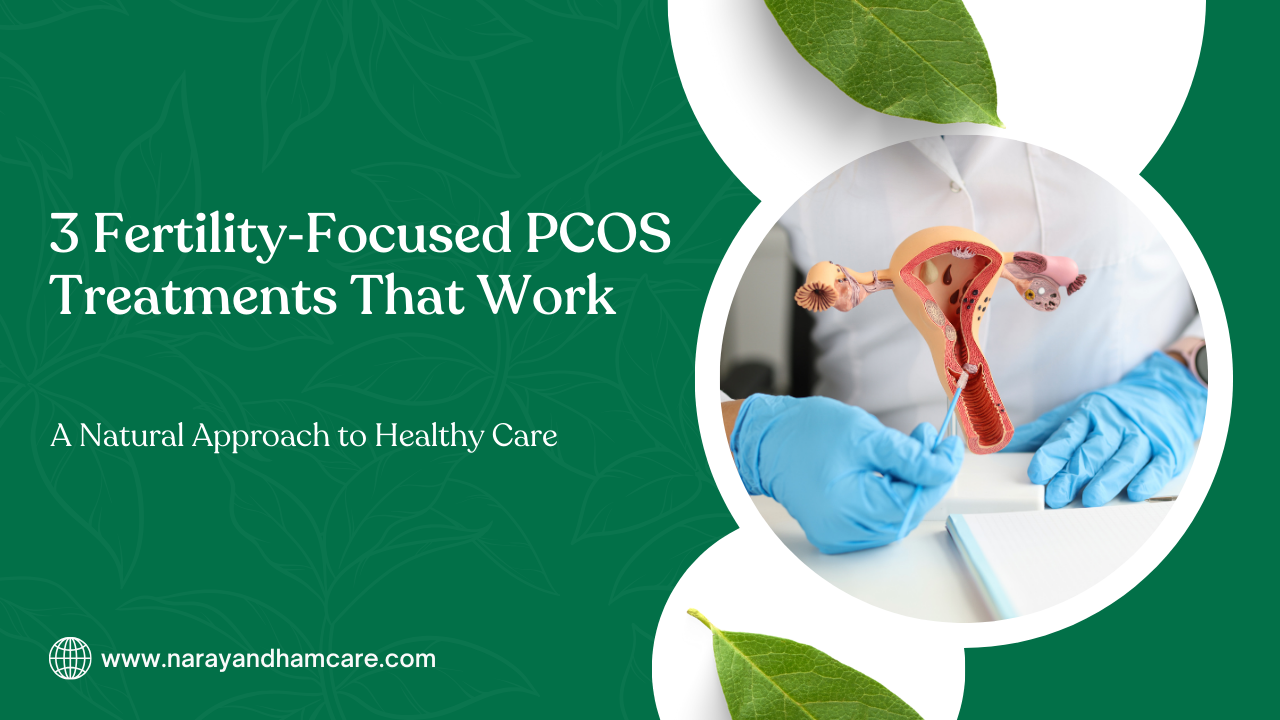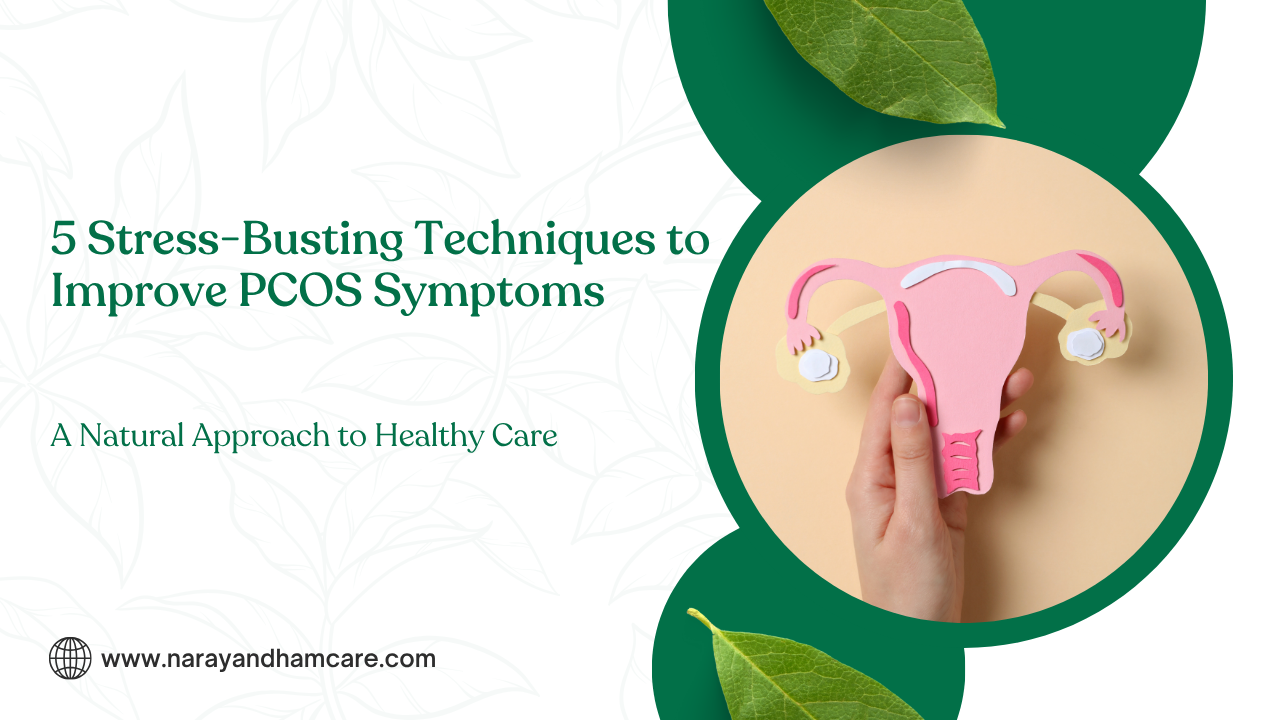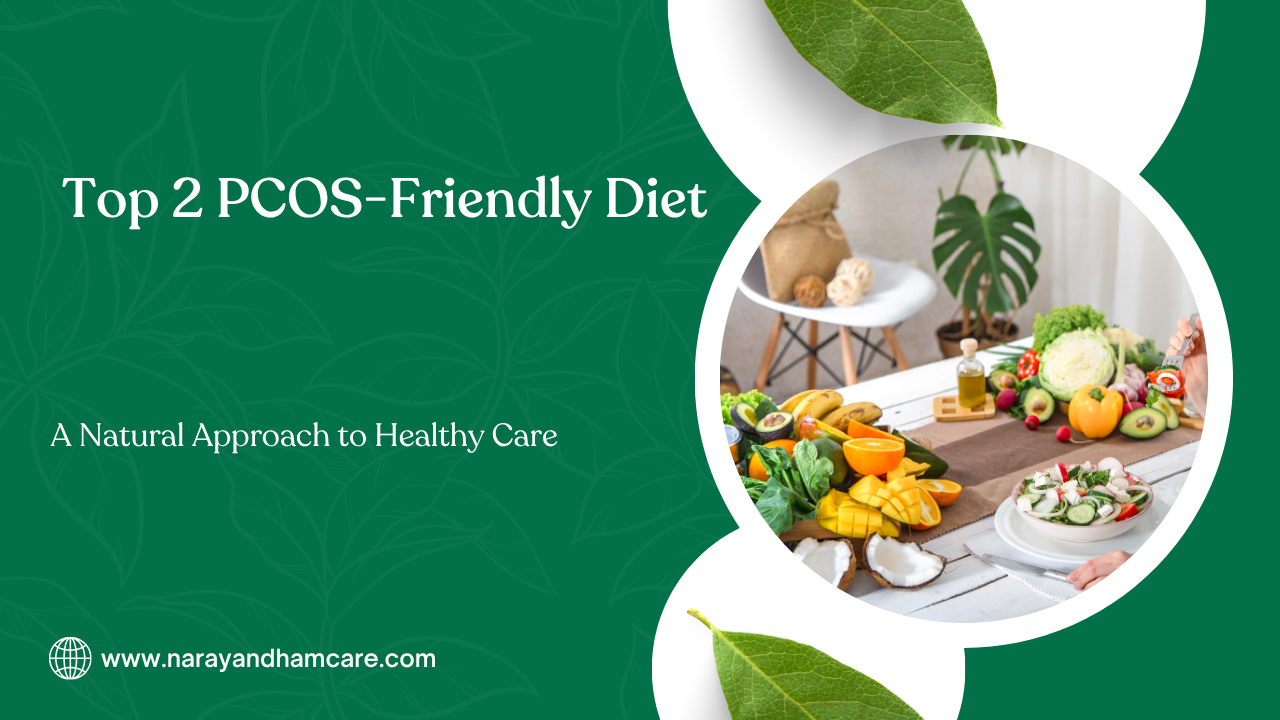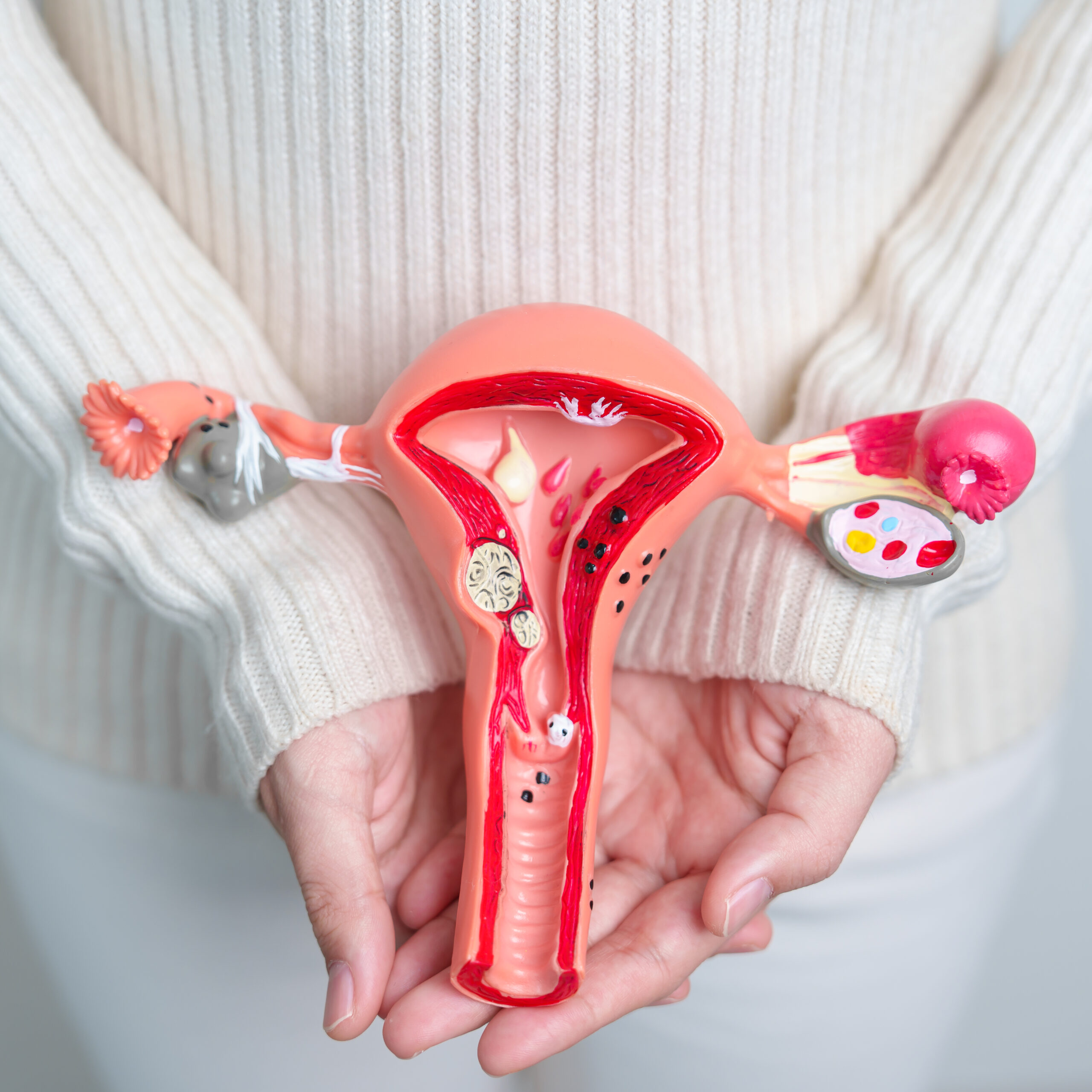Introduction
Polycystic Ovary Syndroms is a hormonal disorder that affects millions of women around the world. One of the biggest challenges faced by women with is difficulty in getting pregnant. This happens due to irregular ovulation, hormone imbalance, and cyst formation in the ovaries.
But the good news is that PCOS-related infertility can often be managed or even reversed with the right approach. In this blog, we will discuss 3 fertility-focused treatments that actually work, including natural methods, lifestyle changes, and Ayurvedic remedies. Whether you are trying to conceive naturally or planning fertility treatment, this guide will help you make an informed decision.
Problem: PCOS and Fertility—Why It’s a Struggle
Women with PCOS often face difficulty in conceiving because of irregular ovulation. In a normal menstrual cycle, one egg matures and is released from the ovary. But in PCOS, the body produces more male hormones (androgens), and the eggs do not mature properly. This leads to the formation of multiple cysts and missed ovulation, making it harder to become pregnant.
Also, insulin resistance—a common issue in PCOS—can cause further hormone imbalance, which disrupts the reproductive system.
This problem affects women across all age groups, especially those in their 20s and 30s. Many women feel stressed, helpless, and even guilty when pregnancy doesn’t happen, but it’s important to know that you are not alone—and you do have options.
Symptoms of PCOS That Affect Fertility
Here are the common signs that PCOS may be affecting your ability to conceive:
- Irregular or missed periods
- Weight gain, especially around the belly
- Acne, oily skin, or dark patches
- Excessive facial hair (hirsutism)
- Hair thinning or hair fall
- Mood swings or depression
- Trouble tracking ovulation or cycles
- No positive result despite trying to conceive
If you notice 2 or more of these symptoms, it’s a good idea to talk to your doctor or a naturopathic fertility expert.
3 Fertility-Focused PCOS Treatments That Work
Let’s explore 3 proven ways to boost fertility with PCOS. These are a combination of modern methods, natural remedies, and lifestyle changes.
1. Lifestyle Changes: Your First Fertility Tool
Why it works:
Simple changes in your daily habits can improve insulin levels, balance hormones, and regulate periods, which helps in natural ovulation.
What to do:
- Follow a PCOS-friendly diet:
Eat high-fiber foods, lean proteins, and healthy fats. Avoid sugar, junk food, and refined carbs.
Include foods like flaxseeds, green leafy vegetables, turmeric, and cinnamon. - Exercise regularly:
Try walking, yoga, strength training, or dancing—30 minutes daily is enough to improve fertility. - Manage stress:
Chronic stress can increase cortisol, which affects ovulation. Try deep breathing, meditation, or journaling.
Ranking keywords:
fertility diet, weight loss,exercise plan, lifestyle changes
2. Ayurvedic Treatments: Natural Balance for Fertility
Why it works:
Ayurveda believes is caused by Kapha imbalance and focuses on restoring balance through diet, herbs, and detoxification.
What to do:
- Herbal remedies (take under expert guidance):
- Ashwagandha – helps reduce stress and balance hormones
- Shatavari – supports ovulation and uterine health
- Triphala – improves digestion and detoxification
- Guduchi – boosts immunity and regulates periods
- Panchakarma therapy (like Uttarbasti and Virechana):
These help detox the body, clear reproductive channels, and boost fertility. - Daily habits (Dinacharya):
- Wake up before sunrise
- Drink warm water with lemon
- Do Abhyanga (oil massage) and yoga
Ranking keywords:
Ayurvedic treatment, natural fertility , Shatavari for ovulation, Uttarbasti for infertility
3. Modern Medical Treatments: For Faster Results
Why it works:
If natural methods take time or don’t work, medical treatments can help stimulate ovulation or assist conception.
What to do:
- Ovulation induction medications:
- Clomiphene citrate (Clomid)
- Letrozole
These help stimulate the ovaries to release eggs.
- Metformin:
Often used to manage insulin resistance in PCOS and improve chances of ovulation. - IUI or IVF:
If oral medications fail, fertility treatments like IUI (Intrauterine Insemination) or IVF (In Vitro Fertilization) may be recommended.
Important Tip:
Always take these treatments under the guidance of a fertility specialist. Also, continue lifestyle and dietary changes alongside for best results.
Ranking keywords:
ovulation treatment, best fertility treatment
Frequently Asked Questions (FAQ)
Q1: Can a woman with PCOS get pregnant naturally?
A: Yes, many women do conceive naturally by making the right lifestyle changes and following a fertility-focused diet and exercise plan.
Q2: How long does it take to get pregnant with PCOS?
A: It depends on your body type, hormone levels, and how well you manage your symptoms. Some women conceive in a few months, while others may take longer or need support.
Q3: Which foods improve fertility in PCOS?
A: Include leafy greens, nuts, seeds, fruits, whole grains, cinnamon, turmeric, and herbal teas. Avoid processed, sugary, and fried foods.
Q4: Is Ayurvedic treatment safe for PCOS fertility?
A: Yes, if taken under proper guidance. Ayurveda treats the root cause and helps restore hormonal balance naturally.
Q5: When should I consult a doctor?
A: If you’ve been trying to conceive for more than 6–12 months without success, or if you have severe symptoms, consult a doctor or fertility expert.
Conclusion
Fertility struggles are real, but they are not the end of your journey. With the right mix of lifestyle changes, Ayurvedic healing, and medical help when needed, you can improve your chances of conceiving.
Start small—eat better, move more, and reduce stress. Talk to an Ayurvedic doctor for natural herbs or therapies. And if required, don’t hesitate to explore medical treatments like ovulation pills or IVF.
Your path to motherhood may take time, but it is possible—and you are not alone in this.
If this blog helped you, please share it with other women facing. Drop a comment or ask your question below—we’d love to hear from you!





